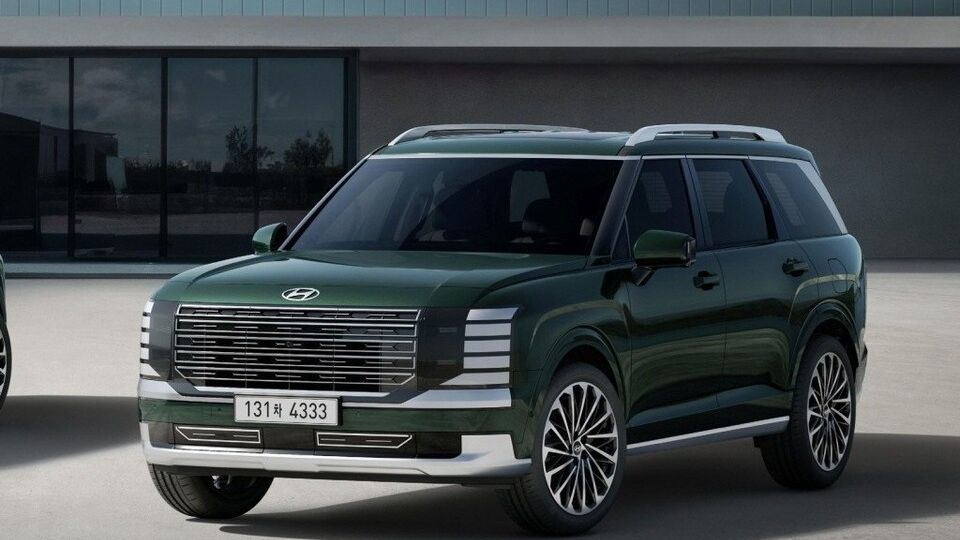October 8, 2025
SEOUL – Despite challenges ranging from US auto tariffs to slowing electric vehicle demand, Korea’s automotive market is showing resilience, driven by carmakers’ push to expand hybrid offerings and strengthen their SUV and RV portfolios.
From January to September, a highlight of Hyundai Motor Group’s new launches was the All-New Palisade, the first revamped version of the large SUV in six years.
A major selling point was the addition of a hybrid powertrain option — a first in a family SUV. Consumer response has been particularly strong for the hybrid model, which accounted for more than 70 percent of launch day orders in January.
Compared with the gasoline version, the hybrid reduces running costs even for a full-size SUV, delivering a fuel efficiency of 14.1 kilometers per liter, which is 45 percent better than comparable gasoline models. It also provides 334 horsepower — 19 percent higher in maximum output.
The electrified powertrain also highlights a more premium driving feel — something rarely associated with large internal combustion SUVs. According to Hyundai Motor, the latest Palisade’s new hybrid system features two motors instead of the single motor in the previous version.
Hyundai Motor’s push to add new hybrid variants reflects its strategy to seize the profitable hybrid boom amid slowing electric vehicle demand and tariff headwinds. The Palisade Hybrid is priced between 49.7 million and 63.3 million won ($35,400-$45,100), which is around 10 percent more than the gasoline version.
In the January-August period, Palisade sales reached 42,268 units, putting the model on track to exceed this year’s target of 58,000.
Like Hyundai, Renault Korea is capitalizing on the rapidly expanding hybrid market with the Grand Koleos Hybrid SUV, which made its debut in September last year.
The hybrid version of the midsized SUV features Renault Group’s dual-motor E-Tech system, enabling EV-like performance for up to 75 percent of city driving, with the motor leading propulsion for a smoother, more refined ride. It delivers a maximum output of around 245 horsepower, with combined fuel efficiency rated at 15.7 to 15.8 kilometers per liter.
Highlighting its family-car appeal, the Grand Koleos provides generous cargo space and roomy second-row seating, built on a 4,780-millimeter-long body with a 2,820-millimeter wheelbase.
“While competitors such as Hyundai Motor Group and KGM have pursued a dual-track strategy with both EVs and hybrids, Renault Korea has emphasized hybrids, moving more gradually toward full electrification,” said Lee Ho-geun, an automotive engineering professor at Daeduk University.
“Due to weakened momentum for EVs, it seems that Renault’s strategy has been more effective than its competitors.”
As of August, the Grand Koleos had cumulatively sold 29,042 units in Korea, representing 80.82 percent of Renault Korea’s total 35,933 sales. Its price currently ranges from approximately 37.8 million to 43.5 million won.
Since its March debut, KGM’s Musso EV — the country’s first-ever electric pickup truck — has gained traction by catering to Koreans’ growing enthusiasm for outdoor activities.
The electric pickup delivers an SUV-like ride quality and passenger comfort alongside superior cargo and payload capacity.
Another strength is its affordability, dropping to as low as 33 million won after tax incentives and subsidies as an eco-friendly vehicle. KGM said the Musso EV delivers outstanding operating efficiency with estimated maintenance costs of only 5.8 million won over five years — around 14 million won less than a gasoline pickup.
“The Musso EV is expected to take the lead in the EV pickup market until next year, when Kia is projected to introduce the electrified version of its Tasman pickup,” said Lee. “Although details of the Tasman EV remain undisclosed, the Musso may maintain a price advantage over its rival.”
The Musso EV is currently priced between 48 million and 50.5 million won before tax incentives, while the gasoline-powered Tasman ranges from 37.5 million to 52.4 million won, depending on the trim level.
From January to August, the electrified Musso pickup sold 5,354 units, surpassing the 6,000-unit mark by mid-September.
Meanwhile, General Motors Korea has not released any new models this year. The release of the Equinox EV — originally scheduled for late 2024 — has been indefinitely postponed. However, the company is reportedly undergoing certification procedures for the launch of its second GMC model, the Acadia SUV, within this year.


